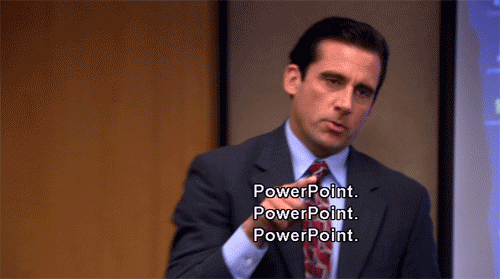
This is another installment of an ELGL original content series titled “Josh’s Job Search 2.0” by Josh Halladay. Halladay is sharing career advice that he is receiving in informational interviews. For more career resources, attend The Employment Lowdown with Jessica Williams, Mac’s List and Prichard Communications on November 13.
Vitals
Ina Zucker

Council Policy Manager, Metro
Education: Wellesley College, B.A., English/Philosophy; University of Oregon, M.S., Environmental Studies; and University of Oregon School of Law, J.D., Environmental Law
Connect: LinkedIn
Connect with Metro: OptIn Panel, Twitter and World Wide Web
Work at Metro: Job Listings
Background on Ina
After relocating from North Carolina where Ina moved in 2000 so she could complete a fellowship with the Southern Environmental Law Center, she clerked for a federal magistrate judge, and then more generally for the judges in the U.S. District Court of Oregon in Portland. At Metro, Ina has worked with two elected Metro Councilors and a whole bunch of transportation and land use policy wonks. She works on many different issues from climate change to light rail to solid waste, and enjoys the proactive nature of policy work as opposed to the reactive nature of litigation.
The Informational Interview
 It was halfway through the interview before I took out my notepad and the end of the interview before I actually wrote anything on it. Bad practice? Ina Zucker, the council policy manager for Metro thinks so. Ina has worked at Metro for more than five years, two in her current position. Before joining the agency she served as a Judicial Law Clerk for the U.S. District Court (she has a law degree on top of a masters), has lobbied for the Humane Society in Washington D.C. regarding wildlife, and even spent some time in the private sector. She has a unique perspective when it comes to local government administration (and informational interviews). As someone who has hiring responsibilities and experience, she is a great person to talk to regarding finding work.
It was halfway through the interview before I took out my notepad and the end of the interview before I actually wrote anything on it. Bad practice? Ina Zucker, the council policy manager for Metro thinks so. Ina has worked at Metro for more than five years, two in her current position. Before joining the agency she served as a Judicial Law Clerk for the U.S. District Court (she has a law degree on top of a masters), has lobbied for the Humane Society in Washington D.C. regarding wildlife, and even spent some time in the private sector. She has a unique perspective when it comes to local government administration (and informational interviews). As someone who has hiring responsibilities and experience, she is a great person to talk to regarding finding work.
How does one find work you ask? By sending out resumes and building a network. How do you build a network? By meeting lots of people especially through informational interviews. How does one conduct an informational interview? As a newbie, I didn’t quite know. That is, until I talked with Ina.
One of the first topics started with a typical question asked by Ina, “What do you want to do?” My answer, “social policy,” was less than satisfactory. Ina explained to me that the answer was far too broad and didn’t say enough about me (probably because I haven’t figured out what I want to be when I grow up). I followed with I wanted to help people through public policy. While this answer was better, it shows that I need to do more research into what my dream first government job is, as this information helps the interviewee help me.
 As the conversation continued, I learned a better way of how to approach the interviews. Decide on a few traits one wants the interviewee to take away and strategically work them in, such as intelligence (i.e. good conversation topics and questions), sincerity (be yourself), conscientious of the other person (respecting their time and schedule), etc. Conscientiousness is what brought us to the topic of the notepad. Ina explained that having a notepad (and using it) shows that you care about what the interviewee has to say. My personal strategy has been to wait until after the interview is over and then dump all the information on the page. I have been pretty effective using this strategy, evidenced by what you are reading right now, but for my next interview, I will pull the pad out at the beginning and jot a few notes to get across the message I value their information.Only 7% (or up to 35% depending on the study) of communication is verbal.
As the conversation continued, I learned a better way of how to approach the interviews. Decide on a few traits one wants the interviewee to take away and strategically work them in, such as intelligence (i.e. good conversation topics and questions), sincerity (be yourself), conscientious of the other person (respecting their time and schedule), etc. Conscientiousness is what brought us to the topic of the notepad. Ina explained that having a notepad (and using it) shows that you care about what the interviewee has to say. My personal strategy has been to wait until after the interview is over and then dump all the information on the page. I have been pretty effective using this strategy, evidenced by what you are reading right now, but for my next interview, I will pull the pad out at the beginning and jot a few notes to get across the message I value their information.Only 7% (or up to 35% depending on the study) of communication is verbal.
 And at the end of an informational interview, Ina suggests a paper leave behind item– either a business card or a resume. Always come prepared with questions and research into the current events relevant to the government. Make sure to talk about one’s self and ask questions about the interviewee. Go to issue based events to meet people, not just events intended for networking.
And at the end of an informational interview, Ina suggests a paper leave behind item– either a business card or a resume. Always come prepared with questions and research into the current events relevant to the government. Make sure to talk about one’s self and ask questions about the interviewee. Go to issue based events to meet people, not just events intended for networking.
She gave me two more solid pieces of advice about informational interviews. Figure out if I care more about working at a particular type of job or about working for a particular organization and actively use that decision to direct my interviews. For example, if I wanted to work in Tigard, I should focus my interviews on Tigard employees. If I care more about working in a social services department, then I need to be interviewing people in those departments. If I just care about living in the metro area and not about which organization or type of job, then there are 25 cities and three counties, only some of which are large enough to have regular job openings.
 Lastly, when it comes to informational interviews, some people get nervous when doing them and are more likely to avoid them (I’m pretty sure it was THAT obvious that I was nervous). If this is the case, set a goal for the number of interviews each week and follow through.
Lastly, when it comes to informational interviews, some people get nervous when doing them and are more likely to avoid them (I’m pretty sure it was THAT obvious that I was nervous). If this is the case, set a goal for the number of interviews each week and follow through.
Warning: Shameless attempt to meet more people coming. Ina also gave me a great tip for writing cover letters and told me about a place with tons of jobs. If you would like to know the tip or the city, contact me at jhallada@gmail.com or find me on LinkedIn.
Question: What other tips would you offer a recent graduate conducting informational interviews? (Due to technical difficulties, the comments section is closed. Please send me your answers and I will share them on my next entry. In case you skipped over my shameless attempt to meet people when you saw the warning, contact me at jhallada@gmail.com or find me on LinkedIn. Yes, I did just shamelessly attempt to meet more people again.)
Supplemental Reading
